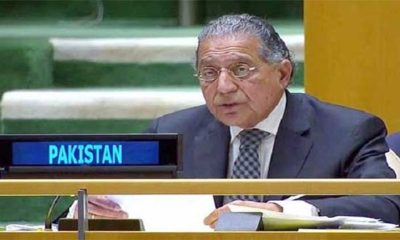India is working on a new electric vehicle policy that would slash import taxes for automakers that commit to some local manufacturing, following a proposal by Tesla (TSLA.O) which is considering entering the domestic market, people with direct knowledge said.
The policy being considered could allow automakers to import fully-built EVs into India at a reduced tax as low as 15%, compared to the current 100% that applies to cars which cost above $40,000 and 70% for the rest, said two of the sources, including a senior Indian government official.
Tesla’s best-selling Model Y, for example, starts at $47,740 in the U.S. before tax credits.
“There is an understanding with Tesla’s proposal and government is showing interest,” said the official, who is familiar with the issue.
India’s commerce and finance ministries, and Tesla, did not respond to requests for comment.
If such a policy is adopted, it could amount to a drastic reduction in the cost of imported EVs that local carmakers have been keen to avoid. It could also open the door for global automakers, beyond Tesla, to tap the world’s third-largest car market where sales of EVs are less than 2% of total car sales, but growing rapidly.
The lower import taxes could help Tesla sell its full range of models in India, and not just the new car it wants to make locally, said a third source.
Shares of Tata Motors (TAMO.NS), India’s largest electric car manufacturer, fell nearly 3% on the Reuters report, while rival Mahindra and Mahindra (MAHM.NS) dropped over 2%, dragging the benchmark auto index to an intra-day low with losses of 1.1%.
New Delhi is going to move slowly in considering the policy proposal as any lowering of taxes on imported EVs could disrupt the market and upset local players like Tata and Mahindra that are investing to build electric cars at home, the Indian official said.
“This is going to go through a lot of deliberations even though government is keen on getting Tesla. That’s because of the impact on domestic players,” said the official.
The policy is still in the initial stages of deliberation and the final tax rate could change, two of the sources said.
TESLA’S NEW EV
Other countries have taken similar measures to spur EV manufacturing commitments. Indonesia, for example, has offered to reduce import duties from 50% to zero for EV makers planning investments, a move seen aimed at attracting Chinese players and Tesla.
Tesla first tried to enter India in 2021 by pushing officials to lower the 100% import tax for EVs. Last year, the talks between Tesla and the Indian government collapsed when officials conveyed the company would have to first commit to local manufacturing.
More recently, Tesla has told Indian officials it is keen to set up a local factory and make a new EV priced around $24,000, roughly 25% cheaper than its current entry model, for both the Indian market and export.
Tesla’s senior public policy and business development executive Rohan Patel has in recent weeks met top officials privately. Prime Minister Narendra Modi, who held talks with CEO Elon Musk in June, has been tracking progress closely, Reuters has reported.
Indian officials conveyed there will be no special incentives for Tesla’s market entry, and the proposal for a low import tax, conditional on a manufacturing commitment, was touted by Tesla to keep both sides happy, the sources said.
One of the sources said Tesla told Indian officials a potential India factory could operate at full capacity by 2030.
Outside the United States, Tesla currently has a plant in Shanghai – its largest factory worldwide – and one outside Berlin. It is building a new plant in Mexico that will focus on a new mass-market EV platform Musk has said will slash costs for consumers.
Post Views: 142


 Sports3 months ago
Sports3 months ago
 Fashion3 months ago
Fashion3 months ago
 Sports3 months ago
Sports3 months ago
 pakistan3 months ago
pakistan3 months ago
 pakistan3 months ago
pakistan3 months ago
 World3 months ago
World3 months ago
 World3 months ago
World3 months ago
 Sports2 months ago
Sports2 months ago



















